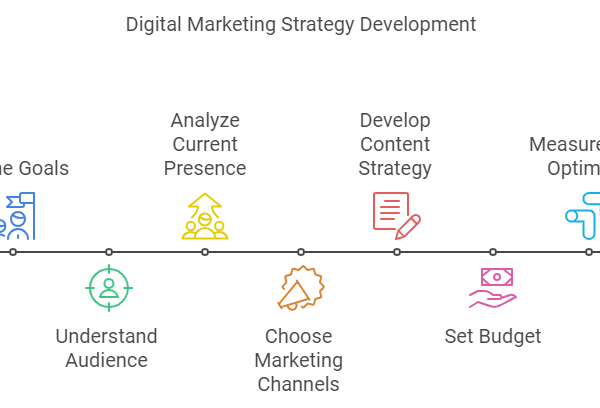
Mass Communication is a captivating field that delves into the dynamics of media, communication, and its impact on society. For students stepping into this realm, understanding what to expect and how to navigate the journey is crucial. Here’s an in-depth guide on what Mass Communication in Amritsar entails and tips to excel in your studies:
Understanding Mass Communication
Diverse Specializations
Mass Communication encompasses various specializations such as journalism, public relations, advertising, broadcasting, digital media, and more. Each specialization offers a unique perspective and skill set, catering to different interests and career aspirations.
Blending Theory and Practice
Expect a blend of theoretical concepts and practical applications. While you’ll study theories of communication, media ethics, and societal impacts, hands-on experiences like reporting, content creation, video production, or campaign development will be integral parts of your curriculum.
Emphasis on Critical Thinking
Mass Communication encourages critical thinking and analysis. You’ll learn to deconstruct media messages, understand biases, and evaluate the credibility of information—a crucial skill in today’s information-driven world.
Evolving Technology and Trends
Technology plays a pivotal role in Mass Communication. Be prepared to explore and adapt to emerging technologies, social media platforms, analytics tools, and multimedia storytelling techniques as they constantly evolve.
Tips for Success in Mass Communication Studies
Embrace Practical Learning
Engage actively in practical projects, internships, or student media organizations. Hands-on experiences provide invaluable insights, sharpen skills, and help you build a portfolio that showcases your capabilities.
Develop Strong Writing Skills
Effective communication lies at the heart of Mass Communication. Cultivate strong writing skills—whether for news articles, press releases, scripts, or digital content. Practice regularly and seek feedback to refine your writing style.
Stay Updated with Industry Trends
The media landscape is ever-changing. Stay abreast of current affairs, media trends, technological advancements, and changes in audience behaviors. Follow industry publications, attend workshops, and participate in discussions to remain informed.
Networking and Building Connections
Network within your field by attending conferences and seminars and connecting with professionals in the industry. Networking opens doors to internships, mentorship opportunities, and potential career paths.
Cultivate Multimedia Skills
Familiarize yourself with various multimedia tools. Learn basic video editing, graphic design, social media management, and content creation. A diverse skill set enhances your versatility and marketability.
Seek Guidance from Professors and Professionals
Leverage the expertise of your professors and seek mentorship from professionals in your field of interest. Their insights and guidance can provide clarity on career paths and valuable advice on industry expectations.
Ethical Awareness
Understand the ethical responsibilities of media professionals. Uphold journalistic integrity, respect privacy, and navigate ethical dilemmas with sensitivity and professionalism.
Time Management and Organization
With a diverse curriculum and practical engagements, effective time management is crucial. Develop a schedule, prioritize tasks, and maintain a balance between academics, internships, and personal life.
Constructive Criticism and Feedback
Be open to feedback on your work. Constructive criticism helps in continuous improvement and refining your skills. Use feedback as a tool for growth rather than viewing it as a setback.
Internships and Practical Experience
Internships are invaluable in Mass Communication. They provide hands-on experience, exposure to industry practices, and networking opportunities. Seek internships at media organizations, advertising agencies, or public relations firms to gain practical insights and build a professional network.
Adaptability and Flexibility
The media landscape is dynamic, requiring adaptability and flexibility. Embrace changes in technology, industry trends, and audience preferences. Be open to learning new tools and techniques, as versatility is highly valued in this field.
Building a Personal Brand
In the digital age, creating a personal brand is essential. Develop an online presence through a professional website, LinkedIn profile, or portfolio showcasing your work. Consistency and quality in your online presence can attract potential employers or collaborators.
Understanding Audience and Market Trends
Study audience behavior and market trends to create content that resonates. Analyze data analytics tools to understand audience engagement patterns, which can inform content strategies and communication approaches.
Cultivate Multimedia Storytelling Skills
In today’s media landscape, storytelling through various mediums is crucial. Master the art of storytelling across platforms—whether it’s through written content, podcasts, videos, or interactive media. A compelling narrative captivates audiences across diverse channels.
Involvement in Student Media and Projects
Participate actively in student-run media outlets or projects. These platforms offer opportunities to apply classroom knowledge, experiment with storytelling techniques, and collaborate with peers—contributing significantly to your practical experience.
Embrace Diversity and Inclusivity
Mass Communication thrives on diverse perspectives. Embrace inclusivity in your work and interactions. Explore stories that represent diverse voices and perspectives, fostering a more inclusive media environment.
Stay Resilient and Persistent
The path to success in Mass Communication might have challenges and rejections. Stay resilient and persistent in pursuing your goals. Learn from setbacks and use them as stepping stones toward growth and improvement.
Seek Mentorship and Continuous Learning
Mentors can provide guidance, advice, and industry insights. Seek mentors within your academic institution or through networking opportunities. Additionally, commit to lifelong learning by staying updated with industry developments and pursuing continuous education opportunities.
Ethical Decision-Making
Ethical considerations are paramount in Mass Communication. Understand the ethical guidelines and principles governing journalism, advertising, and media practices. Develop a strong ethical compass to navigate complex situations with integrity and responsibility.
Research Skills and Data Literacy
Enhance your research skills and data literacy. Proficiency in conducting thorough research, analyzing data, and interpreting statistics equips you to create well-informed and credible content. Understanding data-driven insights is increasingly valuable in media strategy and decision-making.
Cross-Cultural Communication
In an interconnected world, cross-cultural communication is indispensable. Appreciate diverse cultures, communication norms, and global perspectives. Adeptness in communicating across cultures is an asset in today’s globalized media landscape.
Crisis Communication and Management
Learn about crisis communication strategies. The ability to respond effectively during crises is crucial in PR, journalism, and organizational communication. Practice scenario-based exercises to understand crisis management techniques and their implications.
Personal Development and Resilience
Invest in personal development and resilience-building. Develop self-awareness, emotional intelligence, and stress management techniques. Building resilience equips you to handle the pressures of deadlines, criticism, and the fast-paced nature of the media industry.
Professional Portfolio Enhancement
Continuously enhance your professional portfolio. Regularly update it with new projects, articles, campaigns, or multimedia content that showcase your skills and growth. A strong portfolio serves as a tangible demonstration of your capabilities to potential employers.
Media Law and Regulations
Familiarize yourself with media laws and regulations governing different mediums. Understanding defamation laws, copyright issues, freedom of speech, and privacy regulations is crucial to avoid legal pitfalls in media-related work.
Collaboration and Team Dynamics
Learn to collaborate effectively within teams. Develop interpersonal skills, adaptability, and the ability to work in diverse teams. Effective teamwork is fundamental in media projects and enhances the quality of output.
Industry Networking and Continuous Engagement
Engage actively in industry-related events, seminars, and forums. Networking not only exposes you to industry trends but also provides opportunities for internships, job placements, and mentorship.
Self-Reflection and Goal-Setting
Engage in self-reflection regularly. Evaluate your progress, strengths, and areas for improvement. Set clear, achievable goals to guide your academic and career journey in Mass Communication.
Conclusion
Mass Communication is a dynamic field that demands a blend of creativity, critical thinking, and technical skills. By immersing yourself in practical experiences, staying updated with industry trends, and honing essential communication skills, you lay a strong foundation for a successful journey in Mass Communication. Embrace the diversity of the field, seize opportunities for learning, and navigate the challenges with enthusiasm and determination. Your journey in Mass Communication holds the promise of a rewarding and impactful career in shaping information and narratives in society.
Are you looking for the best college for mass communication in Amritsar? Contact us today to get more information about this course.











